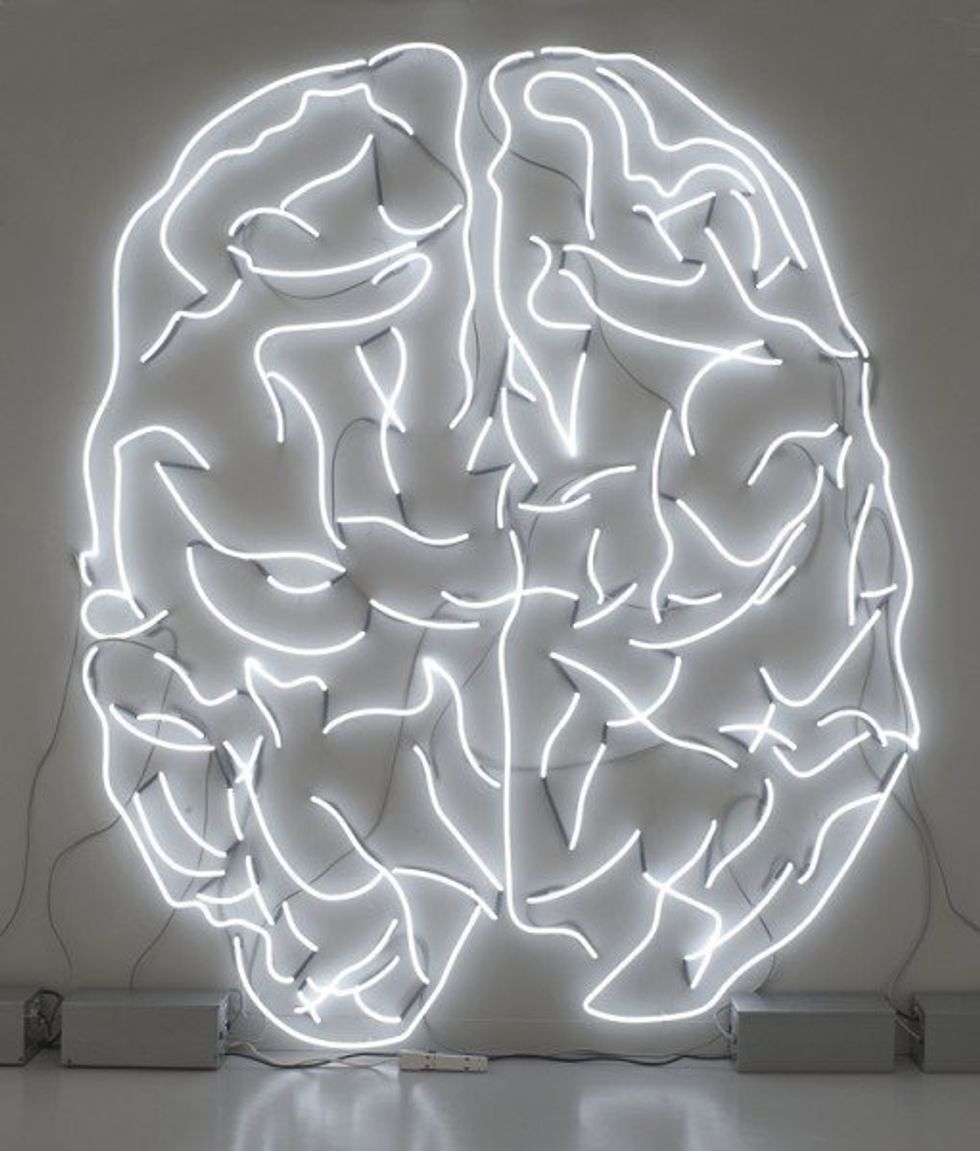1975 have only been on the radar for about 5 years now, and yet they have constantly flipped the script on what anyone should expect their music to be, never particularly caring about genres so much as they do atmospheres, and stringing unrelated tracks together in unexpected ways.
On this latest effort, "A Brief Inquiry Into Online Relationships", The 1975 have really proven themselves as a force to be reckoned with, with each song, from the their classic eponymous introductory track--which is redone with every new record--to the gorgeously heartbreaking yet danceable closing track "I Always Wanna Die (Sometimes)", feeling incredibly well-defined and penned with a meticulous hand.
The singles that came out as a promotion for this record all felt like completely different bands, just listening to the difference between "TOOTIMETOOTIMETOOTIME" and "Love It If We Made It" leaves an audience expecting to be confused, let alone throwing the textures of the other three singles in. Thankfully, despite all the tonal shifts and sonic restructurings, there are a whopping 15 tracks spread over a 58-minute runtime wherein 1975 brings all of these things together in a beautiful, emotional, mostly-cohesive way, despite its erratic delivery.
The tracklist kicks off with their standard intro track, "The 1975", but this time rather than the soft acoustic version on their self-titled record or the ambient version on their sophomoric "
I like it when you sleep...", this version starts with random studio sounds and Matty Healy giving a mumbled "go down soft sound" before taking a breath and hitting the listener with a loud, intense, multi-layered-and-affected vocal akin to that offered throughout Bon Iver's most recent album, "22, A Million". Needless to say, this comes as a shock to anyone listening so headphone users beware.
After the next two tracks, singles "Give Yourself A Try" and "TOOTIMETOOTIMETOOTIME", they change tone drastically with the duo track "How To Draw/Petrichor".
Kicking off, the song has a minute-and-a-half ambient intro that's gorgeous enough to move someone to tears, before the simple and short lyrics for "How To Draw" kick off, calling back to the intro track's affected layered vocals as Matty sings out "I've not learned how to draw/What if you die with all of the cameras?"
After this section fades out, in swoops an electronic interlude that changes every 30 seconds or so, almost as if its unsure of where to go, before settling into the dancing groove of the "Petrichor" section of the song, featuring pitch-shifted vocals of Matty's with a different effect on them.
As a whole, this nearly 6-minute piece of music stands out as one of the most interesting and experimental of the band's career.
Immediately in the fade out of "How to Draw/Petrichor" is the explosive single "Love It If We Made It", the loudest, angriest, most political track of the band's history, and one of my personal favorites they've ever done, due to its exquisite use of signposting and its sardonic tone towards the current political landscape.
This is definitely the album's biggest standout track and for good reason, it's everything people love about The 1975 amplified to the max, a song that can only ever be played as loud as possible, a track that has great power and even greater replay value. There's a reason it's the only single I'm shouting out.
Then, the tide shifts again, this time into a soft guitar ballad, "Be My Mistake", presumably about a secret affair and the guilt that comes with it. With heart-wrenching vocals Matty softly sings to the subject of the song "So don't wait outside my hotel room/Just wait till I give you a sign/Cause I get lonesome, sometimes", talking about the need for secrecy but also the need for this person or thing to be in his life when he's feeling low.
It features a poignant juxtaposition between his love and his lover in the line "You do make me hard, but she makes me weak", showing the difference between his for-the-moment lust and his heart's desire for the love he knew.
Then, after "Sincerity Is Scary", with the whiplash-inducing speed the album shifts in tone again to bring about "I Like America & America Likes Me", the band's self-proclaimed "ode to SoundCloud rap" that sounds much more like a Kanye West-influenced autotuned mantra of a track.
Despite the nightmare that the description might lead one to expect, the track itself somehow manages to be good, with such quotables as the repeated lines "My skin is fire/I'm scared of dying/No gun required!/Will this help me lay down?" talking about the glorification of drug use along with other topics in modern media and music, and the great line "Kids don't want rifles/They want supreme" talking about both hypebeast culture and America's obsession with firearms.
On first listen it's just as obnoxious as one would expect, but it's obnoxious in order to get its point across and to emulate the music made by and appealing to the popular youth.
Then comes one of the most strangely beautiful songs out of the genre, the double-track "The Man Who Married A Robot/Love Theme", a spoken-word track narrated entirely by the British male version of Siri.
In this track, set over an instrumental that very well could have fit in the gorgeous soundtrack of Spike Jonze's movie "Her", is a story of a man who is best friends with the internet, talking about how he and the internet bond beyond the way that he and his friends do, and providing commentary on that, before letting the instrumental play for about a minute on its own.
The follow-up is the grotesquely morbid romantic track "Inside Your Mind" wherein the speaker, whether it be the aforementioned robot or just a dark-minded man absurdly in love, uses a dark, Gone Girl-inspired metaphor to describe his confusion and curiosity towards his lover, "The back of your head is at the front of my mind/Soon I'll crack it open just to see what's inside your mind."
This is only the beginning of the dark imagery in this bleak but beautiful song. Between the verses and choruses is an intense, aching guitar refrain that really drives the point home.
The record flips into a radio single, "It's Not Living (If It's Not With You)", but again slows down, this time to one the most stripped back acoustic tracks the band has ever written, "Surrounded By Heads And Bodies", a simple track written in part about a woman Matty saw in a rehab facility during his recovery, who was visibly depressed.
"Angela/She wears it like a dress" he softly croons, speaking about how when someone is clinically depressed, as his mother has been much of her life, you can see them carrying the weight of it in their shoulders.
"Mine" is next and is stunningly gorgeous and saccharine-sweet while still aching.
The song, a jazzy acoustic track reminiscent of much of "I like it when you sleep...'s" sound but expanded upon, is about knowing you're in love and being happy and satisfied, but still being terrified of moving into the next step, marriage.
"There comes a time in a young man's life/He should settle down and find a wife/But I'm just fine 'cause I know that you're mine" he sings in the intro and outro, indicating his satisfaction in his relationship.
"For some reason, I just can't say 'I do'", follows in the 3rd verse detailing his confusion at his own reluctance to get married.
The most bruised, raspy, and intense vocal performance of the band's career comes in the track "I Couldn't Be More In Love", an Eric Clapton-esque voice-and-guitar ballad, full of pain and anger at the abrupt ending of a relationship.
The guitar here is gorgeous, and the vocal is something fresh and new with Matty growling out the phrase "But what about these feelings I've got?".
The album concludes with the huge anthem, "I Always Wanna Die (Sometimes)", one of the largest-sounding tracks in indie-pop, about the all-too-relatable struggle of a bad mental health patch. Whether you have a diagnosed mental illness or not, everyone's mental and emotional health, much like their physical and/or social health, will experience dismal lows at times.
In the first verse, Matty discusses feeling stuck in a rut and feeling hopeless, but reminds the listener "But your death, it won't happen to you/It happens to your family and your friends", saying that when you die, whether of natural causes or of your own devices, it's not you it affects.
He goes on with these reassuring and relatable messages, and in the bridge tells all his fans "If you can't survive; just try" telling you that no matter how deep and dark life gets, no matter what you're going through, even when plagued with suicidal thoughts, you have to grin and bear it and reach out to someone and try your best to survive, persevere, and make it through.
The song continually picks up pace and volume until the outro repeats the song title as a mantra in the biggest stadium track offered to date, beautifully concluding the album.
In this album, The 1975 put many different pieces together to form the puzzle that is the modern era and the internet. But, this puzzle isn't perfect, a few pieces are missing and a few seem unnecessary. But the pieces that do hit the mark are so gorgeously-crafted that it hardly matters that the image isn't complete, especially considering their follow-up is only 6 months away. Give the record a listen here.
Score: 8/10







 Photo by
Photo by 

 Photo by
Photo by  Photo by
Photo by  a group of people sitting around a table with laptopsPhoto by
a group of people sitting around a table with laptopsPhoto by  people on beach during daytimePhoto by
people on beach during daytimePhoto by  Photo by
Photo by 








